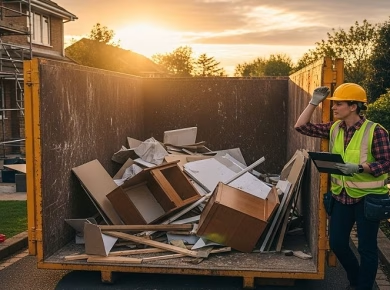When it comes to rural land deals, the stakes can be higher than you might expect, and one of the most critical hurdles you may face is the percolation test, or perc test. Imagine finding the perfect plot of land for your dream home or investment property, only to discover that the soil conditions won’t support a septic system. This scenario is more common than you might think, and it can turn your promising investment into a costly nightmare, potentially costing you $50,000 or more. Understanding the nuances of the perc test and its implications can save you from costly mistakes and help you navigate the complexities of rural property dealings.
Understanding the Perc Test
A perc test evaluates how well soil absorbs water, which is crucial for determining whether a septic system can be installed. In rural areas, where municipal sewage systems are often nonexistent, having a functional septic system is imperative for any residential property. The test typically involves digging a series of holes, filling them with water, and measuring how long it takes for the water to seep away. This simple process can reveal a wealth of information about the land’s suitability for development.
The Importance of Soil Type
The type of soil on a property plays a vital role in the perc test results. Sandy soils tend to drain well, while clay-heavy soils can be problematic due to their slow absorption rates. If you’re considering a piece of land, it’s essential to research the soil composition before you even think about scheduling a test. Engaging a soil scientist or local expert can provide valuable insights into the land’s potential challenges.
For instance, I once worked with a client who was enamored with a beautiful plot of land, only to find out that it had a high clay content, resulting in a failed perc test. This setback not only derailed their plans but also led to additional costs for alternative solutions, such as engineered systems or even the need to find a new property.
Common Pitfalls to Avoid
Navigating rural land transactions can be fraught with pitfalls, especially when it comes to the perc test. Many buyers overlook this critical step, thinking that a simple visual inspection or a conversation with the seller will suffice. Unfortunately, this can lead to significant financial repercussions.
Skipping the Pre-Test Phase
Before you even schedule a perc test, perform due diligence. Gather information on the surrounding area, including previous land use and any issues faced by neighboring properties. Often, properties with a history of septic failures can indicate potential problems. If the land is part of a subdivision, inquire whether the other lots have passed their perc tests.
For example, I had another client who assumed that since their neighbors had septic systems, their land would pass too. After a costly perc test, they discovered that their plot was unsuitable. This could have been avoided with a little more research and a proactive approach.
Understanding Local Regulations
Local health departments or environmental agencies often have specific requirements regarding perc tests and septic systems. Familiarizing yourself with these regulations can save you time and money. Some jurisdictions may require more than one perc test or impose additional testing protocols, particularly if the land is near water sources.
In one case, a client was eager to close on a property without fully understanding the local regulations. After their perc test failed, they faced delays and hefty fees to comply with additional testing mandated by the county. Ensuring compliance upfront can prevent such headaches down the line.
What to Expect During the Perc Test
When you finally schedule a perc test, knowing what to expect can help alleviate some anxiety. The process usually involves a licensed professional who will evaluate the site conditions, conduct the test, and provide a report on the findings.
Test Duration and Cost
Typically, a perc test takes a few hours to complete, but depending on site conditions and the number of test holes, it could take longer. Costs can vary widely based on location and the complexity of the test, usually ranging from $300 to $1,000.
Consider this an investment in your future. While it may seem like a significant upfront cost, a failed test could ultimately lead to expenses far higher than the initial testing fee.
Interpreting the Results
Once you receive the results, understanding what they mean is crucial. The report will indicate the soil’s percolation rate, which is essential for designing a septic system. If the soil is deemed suitable, you can move forward with confidence. However, if the results are unfavorable, you may need to consider options such as engineered systems or even choosing a different parcel of land.
I recall assisting a couple who received a favorable perc test result but decided to dig deeper and consult with an engineer about the design. Their foresight led to a more efficient septic system that ultimately enhanced their property’s value.
Alternative Solutions for Failed Perc Tests
If you find yourself with a failed perc test, don’t despair. There are several alternatives you can explore.
Engineered Septic Systems
These systems are designed to function in less-than-ideal soil conditions and can often be deployed where traditional systems fail. They involve more sophisticated technology, which comes with a higher price tag, but can be a viable option if you’re committed to the property.
Using a Different Site for the Septic System
Sometimes, a small change in location can yield better results. If your property is large enough, it may be possible to find a spot with better soil conditions. A qualified professional can guide you through this process, helping you identify potential sites on your land.
Conclusion: Proactive Planning Pays Off
Navigating the world of rural land deals can be complex, and the perc test is just one of the many hurdles you may face. By understanding its importance, avoiding common pitfalls, and being prepared with alternative solutions, you can save yourself a significant amount of time and money. Knowledge is power, especially in real estate, and being proactive in your approach will not only enhance your success but also empower you to make informed decisions that lead to long-term satisfaction with your investment. Always remember, the right preparatory steps can turn a daunting process into a rewarding journey.






